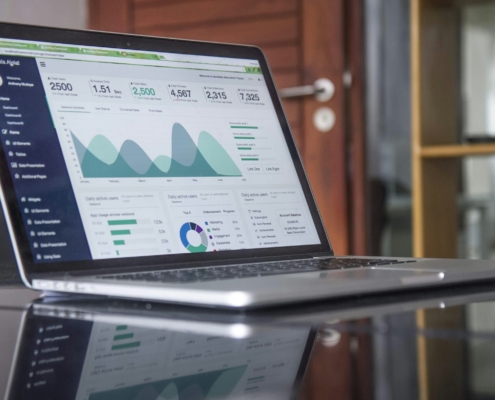Google Page Experience Update Coming May 2021
Table of Contents
Google Page Experience Update Coming May 2021
On 28 May 2020, Google announced that they will be in the early stages of how search algorithms rank and assess web pages. This update is all about the user experience of each page and how they engage overall. This has been aptly named ‘page experience’ will be implemented in 2021 as part of a new Google algorithm.
The Page Experience will be a Google ranking factor based on users’ experience engaging with a web page landing page. This means that if Google decides your page is not a good experience for a user, the ranking may not be as it is now. Conversely, a positive page experience may positively impact your rankings.
What is Google Page Experience?
When Google is referring to when it comes to page experience is that it’s “a set of signals that measure how users perceive the experience of interacting with a web page beyond its information value.” The ranking is based on Google’s Core Web Vitals (Largest Contentful Paint (LCP), First Input Delay (FID), Cumulative Layout Shift (CLS):
- LCP measures the loading page, which should occur in 2.5 seconds when loading the first page for the best user experience.
- FID is the measure of interactivity and should have less than 100 milliseconds.
- CLS is all about stability and for the best user experience, should maintain a CLS of less than 0.1
These type of page experience metrics rely on Core Web Vitals. This is referring to the ranking system that will analyse essential metrics of a healthy website so the quality of the content can be determined.
“Core Web Vitals are a set of real-world, user-centred metrics that quantify key aspects of the user experience. They measure dimensions of web usability such as load time, interactivity, and the stability of content as it loads” – Google.
Additional, the Page Experience ranking signal, will further include any existing signals, such as:
- Safe browsing
- Mobile-friendliness
- HTTPS
- Intrusive interstitial guidelines
The Evaluation of the Page Experience According to Google
It’s a well-known fact, and research shows that users are more partial to a website with an excellent page experience. As its search engine has progressed, Google has created user experience assessments to its algorithm for ranking, including the speed of a page loading and how it interacts with your mobile and security. Google continually strives to improve its evaluation of a users page experience and aims to help people design and create pages that consumers enjoy rather than experience frustration.
While there are yet to be effective tools to achieve this, several ranking signals will be a contributing factor to the Google page experience update. This will include measurable experiences:
- Page load speed (Here is a more detailed guide about page loading speed)
- Mobile-friendliness
- security
- intrusive interstitials
Accelerated Mobile Pages: No Longer Required for Top Stories
Currently, Accelerated Mobile Pages (AMP) are the only pages eligible to compete for Google’s top stories. Google technically hosts these, and they are part of a publishing technology that sees the page load rate achieved in less than a second yet use ten times less data than other web pages.
This technology was launched in 2016 as a way for web pages to load almost instantly on mobile phones. This is largely popular, with it seeing over 25 million domains publishing 1.5 billion AMP pages since its inception. However, this was mainly designed for media outlets and news publications, and it is well-known that Google gives preferential treatment to AMP pages in search rankings.
With the updated Google Page Experience, there will no longer be the requirement for AMP for the mobile version of a web page to rank in the top stories section of Google search. Instead, it will be Page Experience that determines this and will be implemented at some stage throughout this year, 2021.
Optimising Your Page for Page Experience
This is just a few ways you can optimise your page for the experience:
- Optimise your site for mobile
- Take the time to understand a range of tools to measure and report Core Web Vitals
- Secure your website with HTTPS
- Check that your site doesn’t have safe-browsing issues
- Make sure your interstitials are not making your content less accessible4
Continued Relevance of High-Quality Content
It has been made clear by Google that the importance of high-quality content will still be significant. The best information overall still needs to involve a good page experience for the consumer. Additional to this, for pages with similar content, the page experience will be more important for search result visibility.
Can I Adequately Prepare?
Our advice is not to get too bogged down by these new ranking signals because, overall, they are about improving the online experience for users. You are already optimising for the Google page experience if you’re providing quality content that is efficiently and effortlessly accessible.
It is early days for this update, and before any fundamental changes occur, Google will give at least 6 months notice. There is time, and more information will be available closer to its rollout. However, if you want to know how we can help you optimise your web pages, contact our SEO team for further information.







